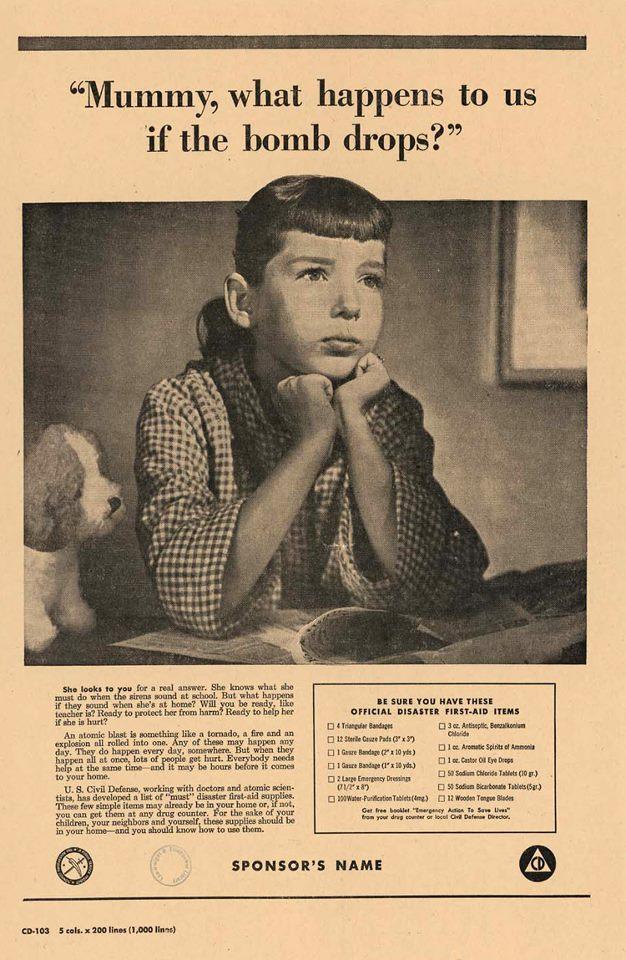 The NYPR Archive Collections
The NYPR Archive Collections
"What would you do if an atomic bomb fell?"

This episode is from the WNYC archives. It may contain language which is no longer politically or socially appropriate.
37th in series.
Host Bill Leonard introduces this episode.
Reporter Lockwood Doty plays 'man on the street' interviews answering the question "What would you do if an atomic bomb fell?"
Answers vary between "taking cover" and "running," a firefighter explains he would have to go to work. Doty notes that very few answered correctly - the correct response is to duck into a doorway or drop into a gutter and cover all exposed parts of the skin.
Doty admonishes a man who continued cutting his grass despite gas explosions in Rochester. His neighbors houses were burning, but he continued on with his chores. This would be the worst response in the face of an atomic bomb.
Milton O'Connell deputy director of NYS Civil Defense Commission talks about an exhibit on the results of an atomic attack. This exhibit which will be touring throughout the state.
Doty reminds listeners of other nations who have learned the meaning of 'personal survival' over the past twelves years: 1940 - the German Luftwaffe over England; August 6 and 9, 1945 - the atomic bombs dropped on Japan, and currently the Koreans.
Actuality of Governor Thomas Dewey speaking about the importance of Civil Defense. Speaks to civil defense officials from several New York cities. Doty continues talking about getting ready for "A-Day". Audio from various speakers about how they are preparing, including government officials from Niagra Falls, Syracuse, and others. James Costikian, Asst Director of NYC Civil Defense addresses the needs of New York, the city set a goal of enrolling 1 million citizens in Civil Defense training, but to this point they have only 250,000.
Tessie O'Shea, British commedianne, recalls an air raid during WWII in England. She recounts how she started a big fire because she was unprepared.
Ray Wiley, Syracuse Public Information Officer for Civil Defense, asks listeners to remember "some preparation is better than no preparation".
Audio courtesy of the NYC Municipal Archives WNYC Collection
WNYC archives id: 2479
Municipal archives id: LT1845